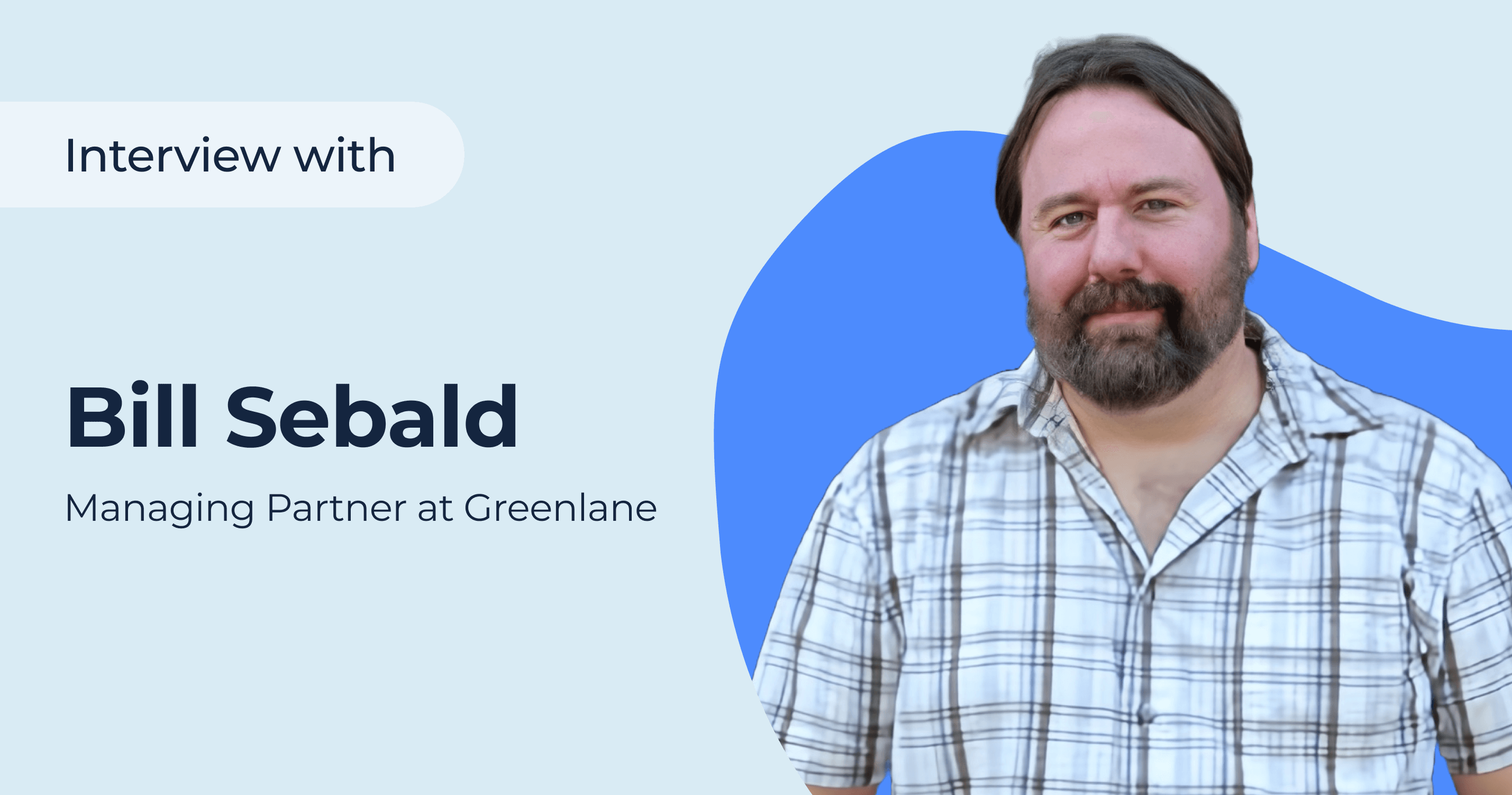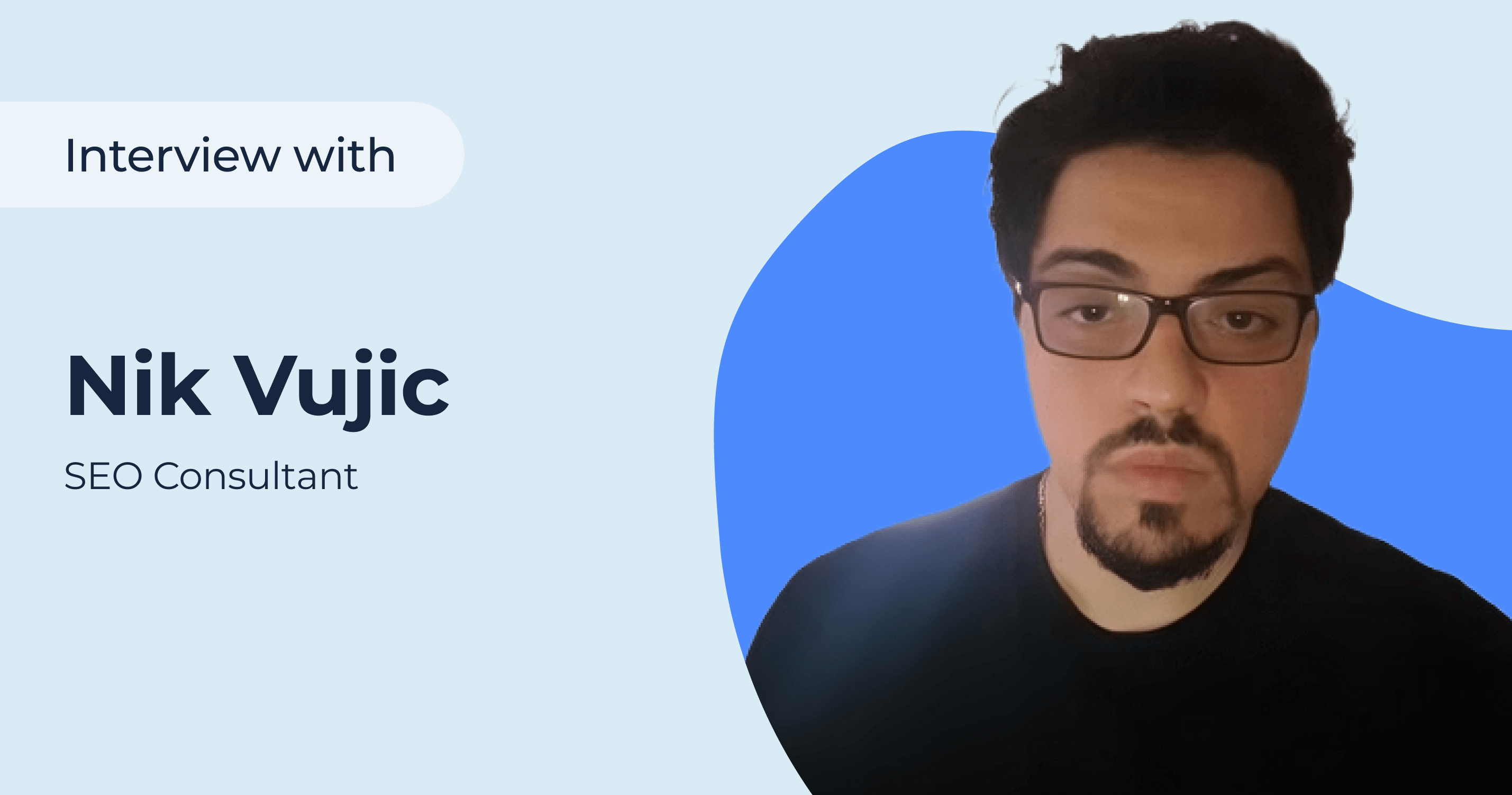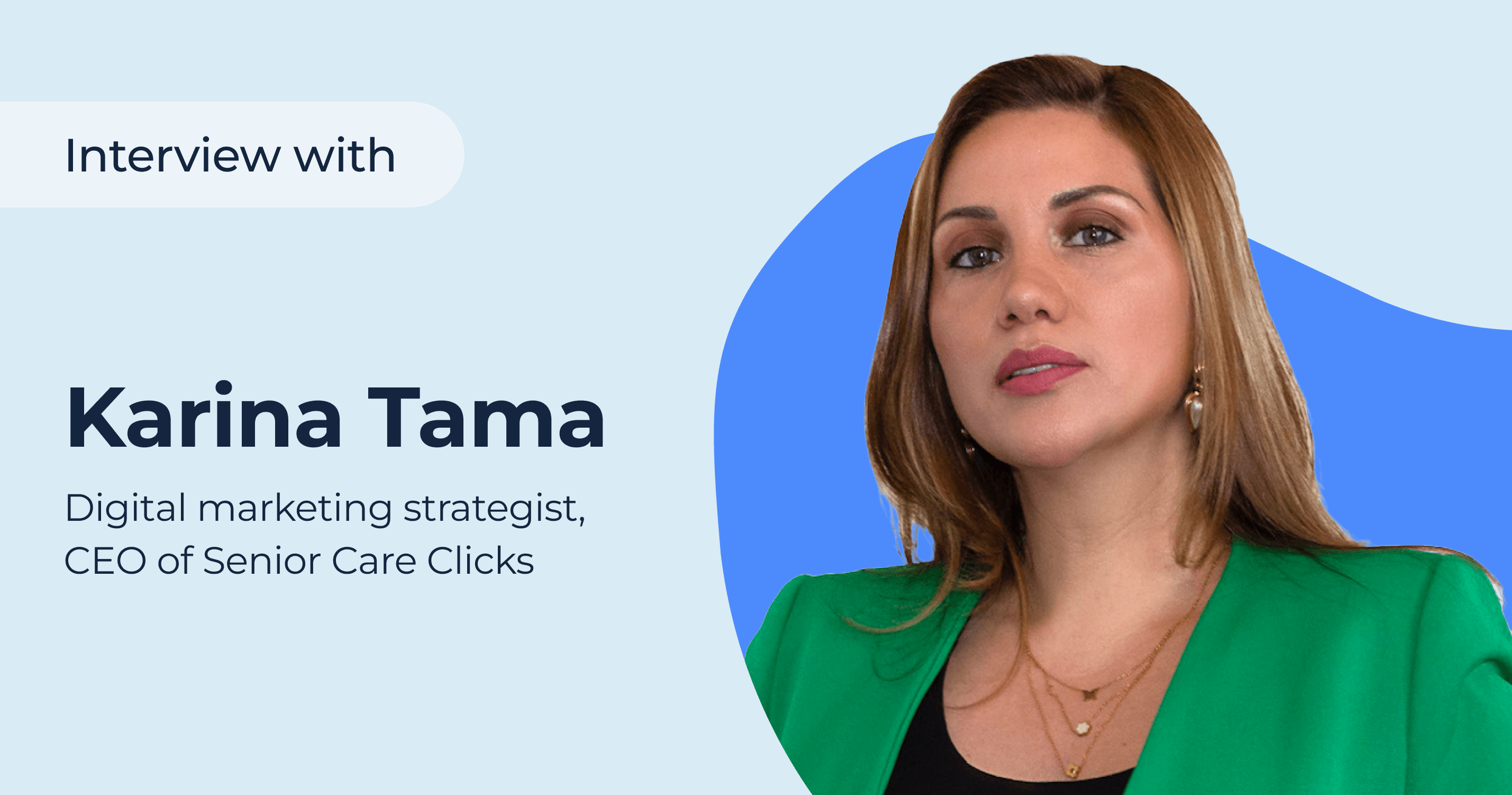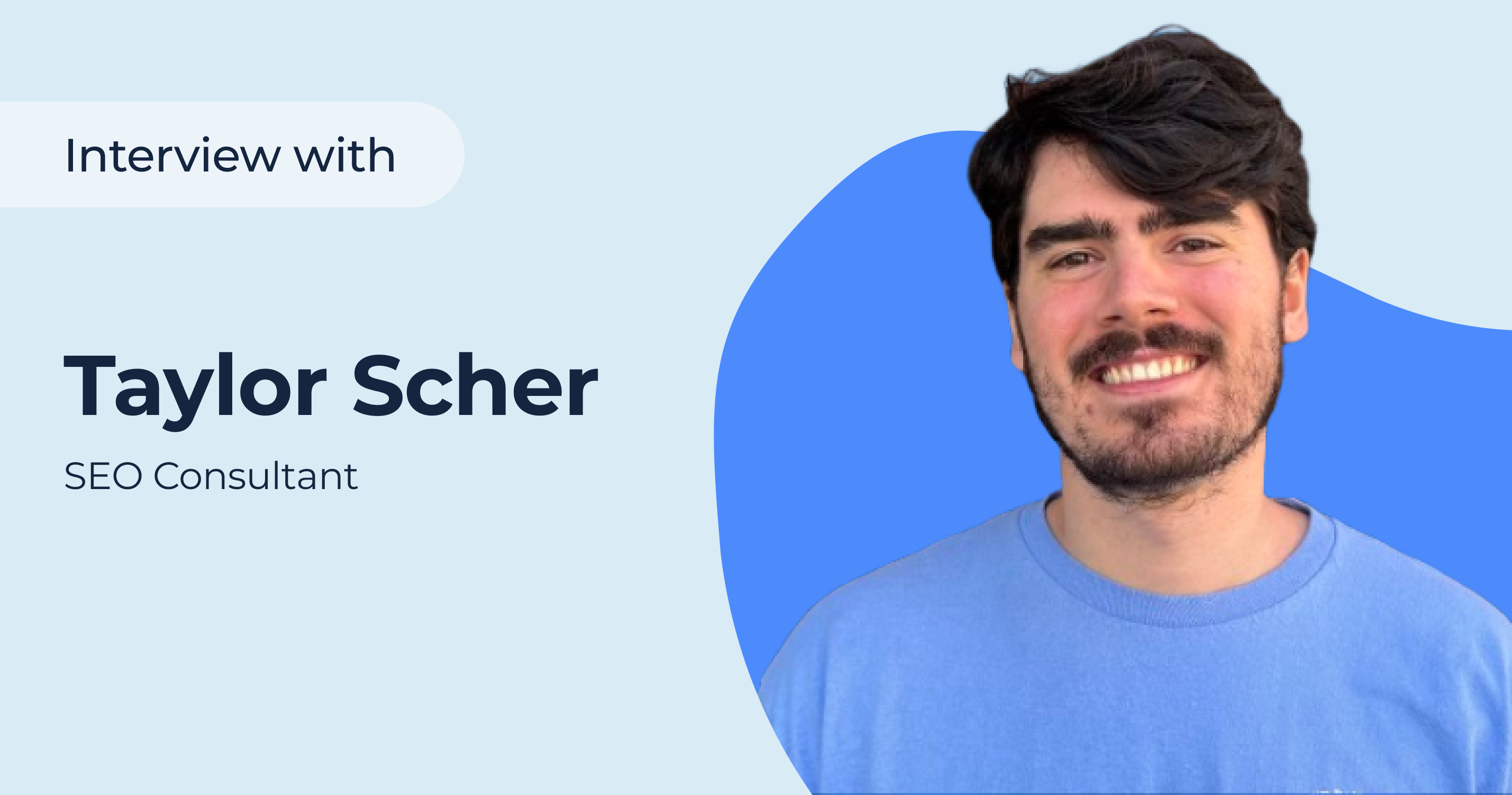Bill Sebald founded Greenlane after 15 years of eCommerce and SEO experience. This included leading the first group of SEOs at GSI Commerce, working with clients like Toys R Us, Dick’s Sporting Goods, PetSmart, and Calvin Klein. Bill is a speaker, a blogger, and an adjunct professor at Thomas Jefferson University. In the interview for Sitechecker, he shared his minds about link building and combination Google Ads campaigns and SEO. To know more about his projects, follow his Twitter.
1. How many years of experience in digital marketing do you have?
I worked on my first website in 1996. It was for a Philadelphia based CD store that wanted to make sales internationally. eBay was just starting to prove that commerce can be done online. I was in charge of figuring out how to bring traffic to our store. That is where I discovered (and fell in love with) SEO.
2. What type of digital marketing you have the strongest skills?
My passion is with SEO. I’ve dabbled in everything, but keep coming back to SEO as my favorite digital marketing channel.
3. What do you do to further your own SEO knowledge and skills?
I consume everything I can find. From sites like MOZ to Search Engine Roundtable to Search Engine Land, and SEO groups on Facebook, I’m always reading articles. Even when I’m not technically on the clock. You have to. There’s just so much to learn.
But, just as importantly, I practice on side websites I own. I also run experiments with clients to see what will work best for their industry. I never wanted to be an SEO that solely learned from reading. I believe it’s best to learn from doing.
4. Is there any marketing or SEO blog you like most of all and why?
The three websites I mentioned above are my preferred source of SEO information. Barry Schwartz (of Search Engine Roundtable) does an amazing job of keeping his ear to the ground. I don’t know if he ever sleeps. I’m extremely appreciative of his work. Then MOZ and Search Engine Land round out the rest with deeper dives into SEO topics. I check the headlines from these websites every day.
5. What are the TOP-3 errors you made at the beginning of your SEO specialist career?
Error #1: I was shy when I started. I didn’t want to embarrass myself and show what I didn’t know. Instead of engaging in online conversations, I simply lurked. Looking back, I should have engaged more to get the full benefit of all these helpful SEOs. The helpful members of the SEO industry are a true blessing.
Error #2: I didn’t take link building seriously enough. I dabbled, but I didn’t put in the muscle or money that solid link building needs. Not necessarily to buy link placements, but to at least make quality linkable assets.
Error #3: I didn’t study Black Hat SEO. Years later when I finally took the time to learn it, I realized that Black Hats were some of the smartest SEOs in the game. Their perspective was incredibly valuable to piece together the whole of SEO.
6. What SEO tactics do you think are underrated?
The tactics for earning rich snippets are often glossed over. I believe many SEOs still only want traffic from the blue links. But Google changed the game. Today, in my opinion, SEO is also about impressions that may not equal a click but provides the information from your brand to encourage a future click.
7. What website performance items should always be tackled when it comes to Google’s recommendations?
Google reviews hundreds of signals when ranking a webpage. On the performance side, some of these signals are very small. Take page caching for example. Optimizing it alone may not show much of a difference in rankings, but in aggregate with all your improvements, it might be enough of a boost to jump ahead of competitors. Do not blow off the little things because they don’t provide an immediate ROI. Do them, even if they are hard.
8. Do you believe that backlinks are Google’s past? Is link building important for increasing the website’s positions nowadays?
As far as I can tell, links still have influence. But it’s the higher quality links. From higher-quality sites. My rule of thumb – if the link can drive qualified traffic, it will probably be an influence on Google.
9. In your opinion, does the technical health of the website affect the ranking positions in search engines?
Most definitely. It makes sense – if a website isn’t fast and readable, why would Google want to show it? Poor sites being clicked in Google only make Google look bad. So, they want to rank technically sound sites.
10. Are you going to surprise SEO and Digital Marketing world with something new (tool/app, course, product)?
Yes. Working on it now. It will be a tool. That’s all I can say at the moment!
11. How do you make competitors analysis? Please provide a short 1-2-3 steps guide.
Step 1: Identify the area you need to analyze. Technical? Content? Links? Traffic? All of these require different steps.
Step 2: For a lot of the areas, a tool like SEMrush or ahrefs can give you great competitor insights. Collect that data.
Step 3: Now that you have the data, you need to spend some time looking for the storylines. Where are the competitors outperforming you? Why are they outperforming you? Then you can begin to formulate a plan of attack.
12. What key factors to measure when planning to launch a website in absolutely unknown to your niche?
I would review the landscape. What terms or themes rank in this niche? Then I’d take a look at all the sites competing for these rankings. I’d also use SEMrush or ahrefs to get a sense of the traffic coming to these sites. This gives me a sense of competition, so I know how much time and money I need to invest. Then it’s simply following the steps in the last question to find areas of opportunity.
13. Google webmasters every year say that backlinks do not work. What do you prefer for your website according to them: good backlink profile or high-quality content?
If someone says links don’t work, then I have to believe they’re going after the wrong links. If it’s easy to get link, yeah, they probably don’t work.
But for me, it’s not a question of which would I go after. I’d go aggressively after both. It’s like asking if my racecar should have a good engine or fuel? The answer is both.
14. What is your checklist when doing website audit?
This depends on the audit. Our technical audit, for example, has well over a hundred items we check. From accessibility to speed, to crawl structure, and so on.
15. In your opinion, does user’s behavior impact on website ranking in SERP?
Yes. When Google says it doesn’t, I don’t think they’re being truthful. So many experiments show it is somehow calculated. And why not? Human behavior on a website is one of the best possible metrics.
16. In your opinion, does the technical health of the website effect on rankings in SERP?
Absolutely. I’ve seen a website go from hundreds of visits to tens of thousands of visits just by fixing some technical issues.
17. What is your approach to developing an SEO strategy?
I can answer that best with a blog post I wrote on MOZ – https://moz.com/blog/seo-strategy
18. What services/companies/apps have inspired you the most this year?
I’m inspired by companies that take chances with their marketing. Too many play it safe and wait to see what others do. I find that so backward. It’s hard to be in the lead. But you have no shot when you’re waiting for everyone to take their first steps.
19. What are the most critical SEO mistakes you have ever seen in other companies?
The mistakes are usually technical. I worked on a big name who had a spam problem. Their platform allowed for others to spam them. The site has hundreds of thousands of UGC spam and it was because of a flaw in their design. It was just never conceived when building out the logic for the site.
20. How do you see the future of SEO (in 5 years)?
More of the same. Google has a history of simply trying to understand search intent and match with the best content. So, Google has to simply get better at each. Through their history, they roll out features that simply support this goal.
21. Which SEO or marketing tools can you recommend as a must-have for every SEO specialist?
Sitebulb. Pitchbox. Ahrefs or SEMrush. And Google Search Console.
22. What advice can you give for those who are just starting their career in digital marketing?
Don’t try to boil the ocean. Learn pieces at a time. As you learn different pieces, in time, you’ll see how they all fit together. It could take a couple of years until the whole thing clicks for you.
23. SEO is such a controversial thing. Every SEO specialist rate its success differently. What is your way to rate SEO success? What metrics do you look at?
I measure business goals. If the work drove more ROI, then SEO was successful. Different businesses have different goals.
24. In your opinion, good SEO specialist should be a good analyst? What extra knowledge should SEO specialist has to succeed?
SEO is an interesting channel because it uses both the left and right brain. You need to be technical, but you also need to be creative. It’s an art and a science. If you lean to one side, practice your other side.
25. You are noticed at many digital conferences. How important live communication is for business? How does it work for you?
Networking is huge. Conferences are great for learning more than just what’s on stage. Putting yourself out there, and introducing yourself to others is something that has always been valuable. It doesn’t always bear fruit immediately, but building serendipity does come back to you eventually.
26. Should a business have a corporate blog?
Only if they have content people want. Otherwise, you can use the main site for organic landing pages. The web is crowded enough with junk that people write because they believe it’s good for their SEO. Junk is never good for SEO.
27. How can start-ups and early-stage businesses use SEO effectively to drive traffic to their sites?
Unless you can make a big splash in your entrance, SEO will be a slow climb. Do a little every day if possible. But keep looking for that opportunity to put a linkable asset in front of people. Earn links to signal popularity and authority in your space.
28. What do you prefer the most: client SEO, own projects, consulting, something else?
I like it all. In all cases, I’m part of building something. That’s one of the things that drew me to SEO in the first place. Not to mention I’m competitive, and I like earning money. SEO is the perfect channel for me.
29. What strategy do you prefer: launch and grow many small projects or work on a few solid projects?
Of those choices, I would prefer a few solid projects. Success will likely come to them faster.
30. Have you ever used black hat and grey hat SEO tactics? What do you think about them?
I have. Not for clients (Greenlane is a white hat agency), but I have tinkered in the dark arts for my own affiliate side projects. I think some of it is genius, and I think some of it is pretty far-fetched. But all of it is an important education. It’s like learning different styles of music. All in all, it will make you a more rounded artist.
31. Have you ever run Google Ads campaigns? How do you combine Google Ads campaigns and SEO?
PPC and SEO are a perfect couple. Can’t get the organic rankings? Try PPC. But if you have both an organic and paid presence, that’s usually a great opportunity for SERP ownership. Plus, running PPC ads can provide immediate test results. I love the idea of driving certain ads to specific parts of your funnel and using SEO for other areas. It’s fun drafting that type of plan, and more fun to see it drive conversions.
In other cases, you might find that you can turn down your PPC spend when organic starts taking hold. That’s not usually the case in my experience, but sometimes it works out in favor of your wallet.
32. Does your university degree help to succeed in SEO and digital marketing?
Some. SEO is a marketing channel. Some of the marketing concepts still apply in SEO and digital marketing. For example, developing strategies, understanding user metrics, and so on. When I was in college, digital marketing wasn’t taught. I hope that’s changing in most universities.
33. Can you share your professional and business plans for the next 2-3 years?
The plan is simple. Keep absorbing information and growing Greenlane. We don’t have a board or investors, so we can completely go where the incoming data drives us.
34. Can you describe in a few words your strategy how do you work with any project from start to finish?
I’m a big fan of SMART goals. That’s probably the best answer I can give. I definitely encourage your readers to take a look at the SMART goal concept, and use it in whatever strategy you design.
35. What can you tell about mobile SEO? Is it true for you that mobile SEO will absolutely force out desktop soon?
The concepts are really the same. The execution can be a little different. But we are in a mobile-first index now. Mobile is Google’s preference over desktop.
36. Is it important for SEO success to have high-quality content or optimized meta tags?
Both. The quality content helps relevance. But so does quality content in the tags. Make sure your contextual and technical SEO is sound. It’s not either / or (in my opinion).
37. Structured data is becoming more and more important these days. How do you think why? Why did Google start to pay so much attention to structured data sites?
Google looks into the code for context. Structured data helps give search engines this context. Plus, when trusted, some of the schema markup can give you eye-catching SERP features. Take any opportunity you can to stand out in the results.





